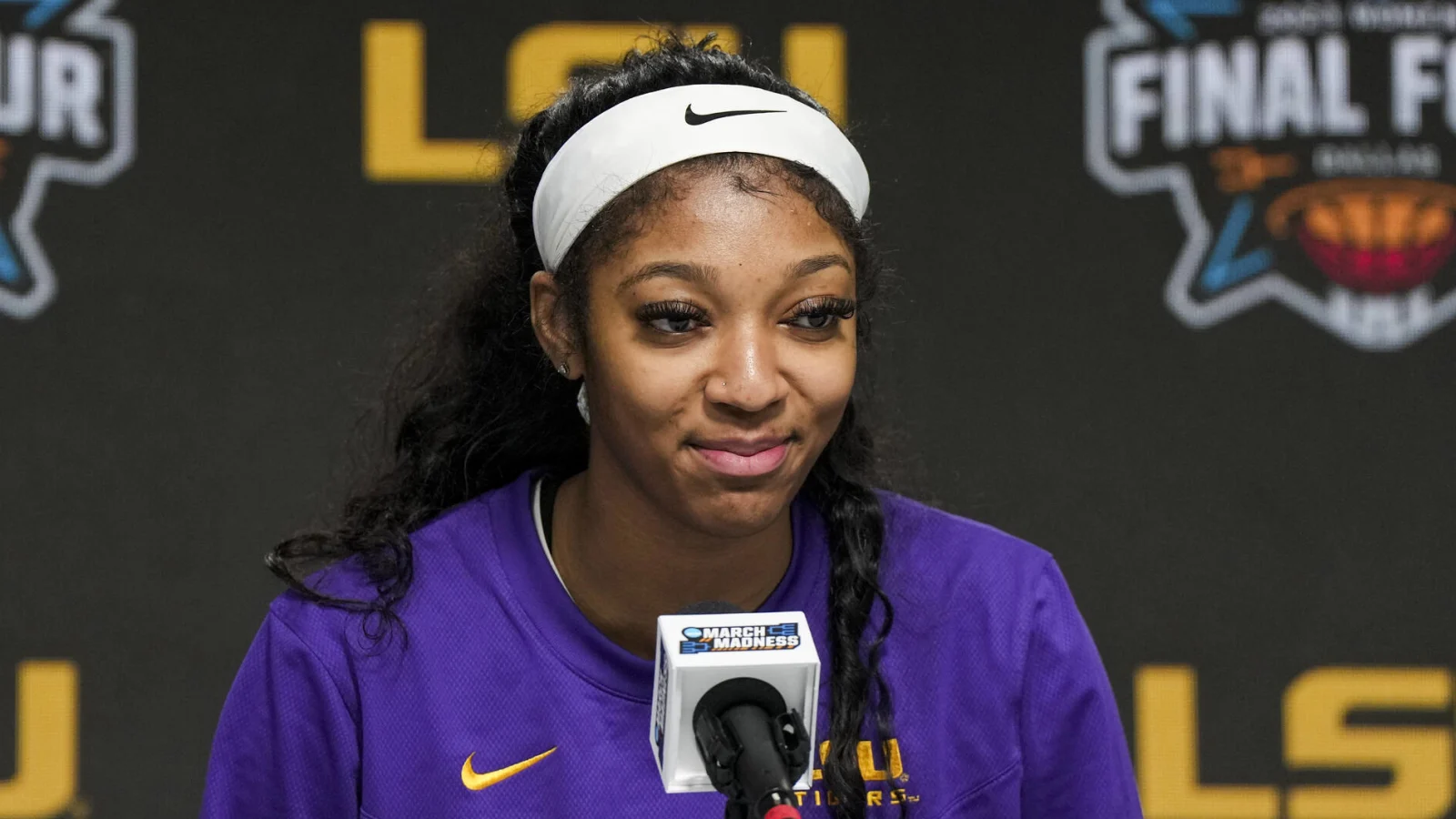### Controversy Erupts as Angel Reese Criticizes NCAA Over Gender Inequality
In a bold and powerful move, Angel Reese, one of the brightest stars in women’s college basketball, has publicly criticized the NCAA for its handling of gender inequality in sports. Her outspoken remarks have ignited a widespread debate, shedding light on long-standing issues and sparking calls for significant changes within the organization.
#### Reese’s Bold Statements
Reese, who led LSU to an NCAA Championship victory and has become a prominent figure in women’s basketball, used her platform to address the disparities she and her fellow athletes face. During a press conference following a significant game, Reese did not hold back. “It’s 2024, and we’re still fighting for basic equality in college sports,” she stated. “The discrepancies in funding, facilities, and overall treatment between men’s and women’s programs are unacceptable.”
Her comments came on the heels of several high-profile incidents highlighting the inequalities in collegiate athletics. Reese pointed to the differences in resources allocated for the men’s and women’s tournaments, including disparities in training facilities, accommodations, and media coverage.
#### Immediate Reactions
Reese’s statements have resonated deeply within the sports community, drawing support from many fellow athletes, coaches, and advocates. Several high-profile figures in women’s sports, including WNBA players and former college athletes, have voiced their agreement and praised Reese for her courage.
Maya Moore, a retired WNBA star and activist, tweeted, “Proud of Angel Reese for speaking up. Gender equality in sports is long overdue. The NCAA must take action now.”
Coaches from various women’s programs have also echoed Reese’s sentiments. “Angel’s right. The gap between men’s and women’s sports in college is glaring and needs to be addressed,” said Dawn Staley, head coach of the South Carolina Gamecocks. “We need more athletes like her willing to speak truth to power.”
#### NCAA’s Response
The NCAA has responded to the controversy with a statement acknowledging the need for improvement. “We appreciate the concerns raised by Angel Reese and other athletes,” said NCAA President Charlie Baker. “We are committed to ensuring that all student-athletes have equitable opportunities and resources. We will be reviewing our policies and practices to address these issues.”
Despite the conciliatory tone, many critics feel the response falls short of the concrete actions needed to rectify the disparities. Advocates are calling for a more detailed plan and timeline for implementing changes.
#### Broader Impact and Calls for Change
Reese’s criticism has amplified the ongoing conversation about gender inequality in sports, particularly in the wake of the high-profile disparities exposed during recent NCAA tournaments. Advocates are pushing for a comprehensive review of how resources are allocated and calling for policies that enforce equal treatment and opportunities for female athletes.
The controversy has also sparked discussions beyond college basketball, with many seeing it as part of a broader movement for gender equality in sports. Organizations and advocacy groups are using this moment to rally support and push for legislative measures that ensure fairness and equity.
#### Reese’s Role as an Advocate
Angel Reese’s willingness to speak out has solidified her position as not just an athlete but also an advocate for change. Her influence extends beyond the court, inspiring young athletes and showing the power of using one’s platform for advocacy.
“I want to be remembered not just for my skills on the court, but for making a difference off it,” Reese said in a follow-up interview. “It’s about leaving the sport better than we found it, for the next generation of female athletes.”
#### Conclusion
Angel Reese’s outspoken criticism of the NCAA has brought renewed attention to the issue of gender inequality in college sports. Her powerful words and the subsequent reaction from the sports community underscore the urgent need for change. As the debate continues, Reese’s advocacy is likely to inspire further action, pushing the NCAA and other governing bodies to address these longstanding disparities and move towards a more equitable future for all athletes.
